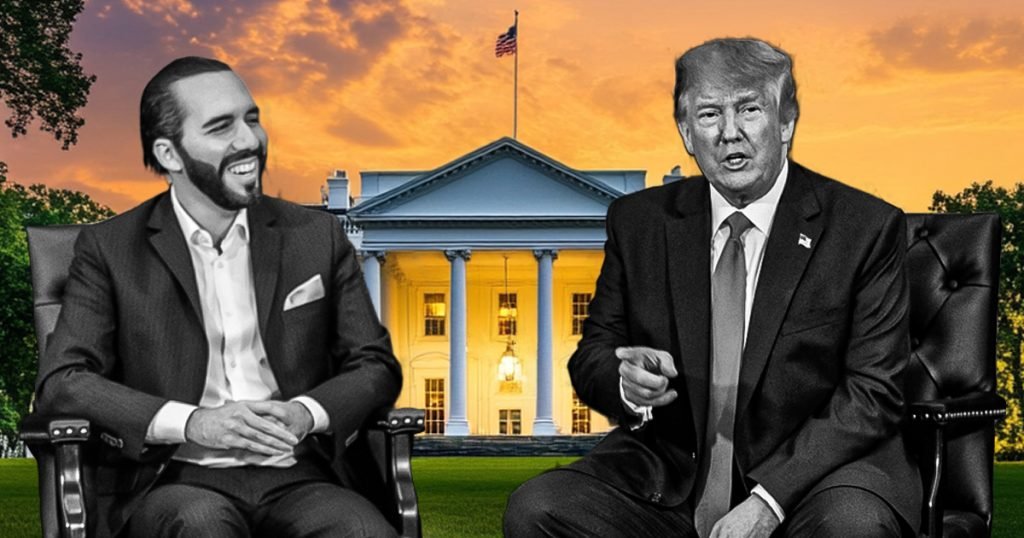Trump Invites El Salvador’s President Bukele to the White House: A Key Meeting on Security and Bitcoin
In a significant diplomatic move, President Donald Trump has extended an official invitation to El Salvador’s President Nayib Bukele for a meeting at the White House slated for April 14. The invitation, confirmed by Bukele in a post on X, formerly known as Twitter, underscores the strengthening ties between the United States and El Salvador and highlights a shared commitment to addressing pressing national and regional issues.
The confirmation of the meeting came shortly after Trump commended Bukele for his decisive approach to combatting gang violence in El Salvador. During a conversation on April 1, the US President expressed appreciation for Bukele’s collaborations with US immigration enforcement and his administration’s efforts to maintain public safety. Trump specifically lauded Bukele’s initiative to utilize a newly established high-security prison, designed to hold notorious gang members such as those from MS-13 and Tren de Aragua, many of whom were deported from the US. Such acknowledgments indicate a mutual recognition of the importance of effective governance in enhancing regional security.
Both leaders are expected to explore the prospects of deepening cooperation between El Salvador and the US, particularly in areas relating to border control and public safety. The bilateral relationship has gained renewed focus, as their shared concerns about migration and potential security threats continue to shape discussions around US-Latin American relations. In an age marked by rising gang-related violence and the complexities of immigration policies, this meeting represents an opportunity for both nations to align their strategies and foster more substantial bilateral collaboration.
A lighter moment emerged during Bukele’s confirmation of the meeting when he mentioned, half-jokingly, that he would bring “several cans of Diet Coke” to the White House, a humorous nod to Trump’s well-known affinity for the beverage. This banter signifies a budding rapport between the two leaders, which could be pivotal in facilitating constructive dialogues on stricter strategies for law enforcement and public safety.
While the invitation letter focused more on security concerns, there’s palpable speculation in the cryptocurrency community regarding whether Bitcoin would be part of their discussions. Both Trump and Bukele have consistently advocated for Bitcoin, sharing visions of its potential. Under Bukele’s leadership, El Salvador made history by becoming the first country to adopt Bitcoin as legal tender, positioning the nation at the forefront of global cryptocurrency conversations. With El Salvador currently holding over 6,130 BTC, the ongoing dialogue around Bitcoin adoption has gained momentum, potentially making it a critical talking point in the upcoming meeting.
As the US also progresses toward formalizing its stance on digital assets by establishing a National Bitcoin Reserve, there is a belief among industry analysts that Bitcoin could take center stage during the meeting. Given both leaders’ pro-Bitcoin positions, possible discussions regarding joint policy changes or statements could significantly impact global perceptions of Bitcoin regulation and adoption. This intersection of governance, security, and cryptocurrency captures a contemporary ethos in international relations, where digital finance and traditional political dynamics converge.
Overall, the meeting on April 14 is expected to be more than just a diplomatic courtesy; it represents a significant opportunity to tackle shared challenges facing both nations. With the backdrop of security concerns and emerging financial technologies like Bitcoin, the outcomes of this meeting could reverberate far beyond their immediate conversations, potentially influencing regional stability and the future of cryptocurrency adoption worldwide. As the global landscape evolves, the relationship between the United States and El Salvador under the leadership of Trump and Bukele could pave the way for innovative approaches to governance, security, and economic resilience.


